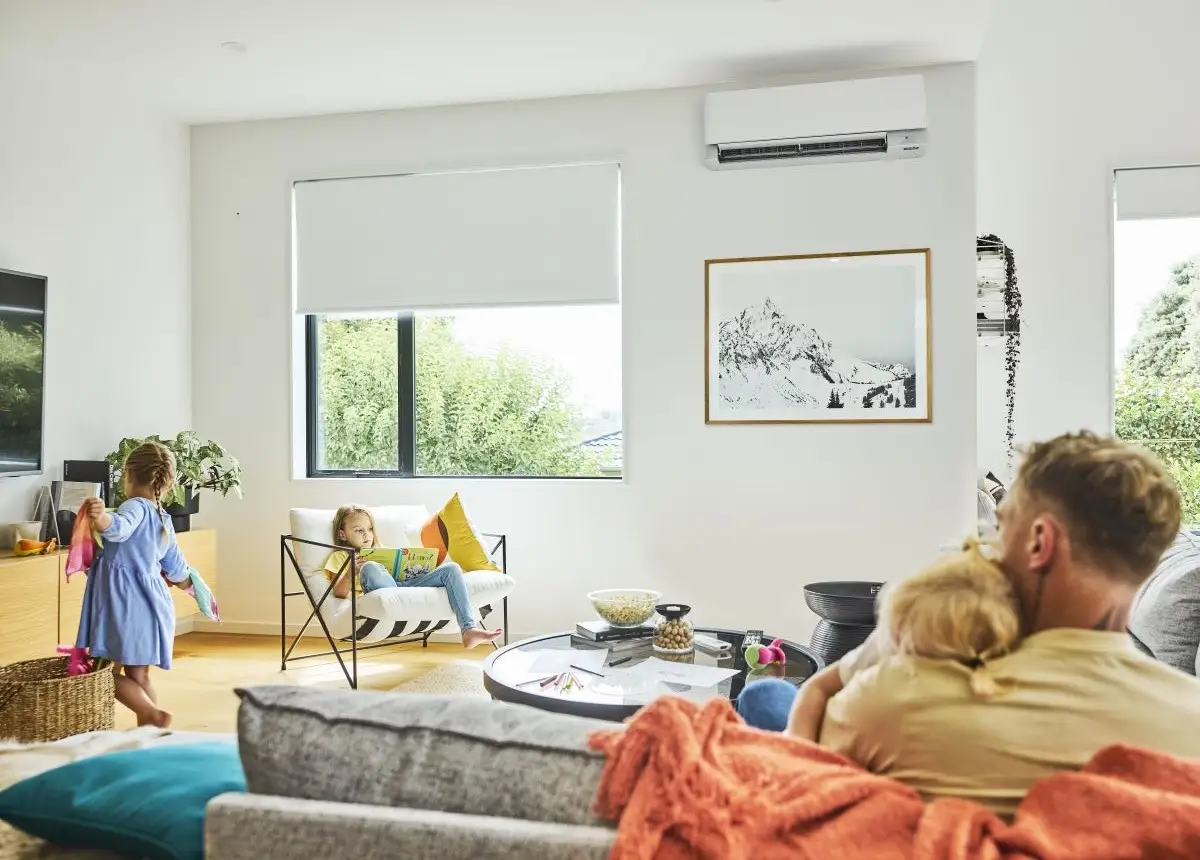Keep cool over summer
Summer in Aotearoa is all about sunshine, barbeques and good times with whānau and friends, but the heat can sometimes take its toll. From natural shading and fans to clever air conditioning tips, here’s how to keep cool over summer while keeping your energy use in check.
Shade and airflow
Keeping the sun out is an easy way to cool your home without using extra power. The simplest way is to close curtains and blinds while keeping windows slightly open. This helps reflect some heat while letting the rest escape outside.
External shading, like installing outdoor blinds or awnings, is a great option, especially if you have a room that overheats on a regular basis.
Open doors and windows to let fresh air do the work and create airflow. Consider adding security latches so you can safely leave windows open when you’re out or at night.
Table-top, floor and ceiling fans use much less energy than air conditioning. If you have a heat pump, you can use the fan-only setting with windows open for a breezy alternative. Just keep the windows closed if using cooling mode.
If you’ve got a green thumb, you might consider planting deciduous, or seasonal, trees — they offer shade during the summer, and will let sun through when they lose their leaves in winter.
Electric fans use a lot less energy than air conditioning. If you have a heat pump, you can use the fan-only setting with your windows open.

Smart air conditioning
If you’re using a heat pump/air conditioner, small tweaks can make a big difference. They’re highly energy-efficient, and offer heating and cooling to keep you comfortable all year long.
Cool one room (it’s what most are made to do) and keep doors and windows closed. During the day, set the temperature to a minimum of 24°C (a lower setting won’t make it work faster). At night, 20°C is ideal for sleeping. Setting to these temperatures means you use less power while keeping your space comfortable. And don’t forget to clean the filter regularly — it’ll help your appliance run more efficiently and save you power.
Dehumidifying mode uses less energy than full air conditioning. Avoid using the ‘auto’ setting, as it may switch to heating.
Single-duct portable air conditioning units aren’t the most energy-efficient choice because of their design, which draws in hot air while trying to cool the room. This means they must work even harder to keep temperatures low, costing you more power and money.
If you’re building, renovating, or looking to replace an older heating/cooling system that’s at the end of its life, heat pumps are a smart way to go.
Choose the best air conditioner/heat pump
When buying an air conditioner/heat pump, make energy efficiency a priority. This will help you save money on running costs.
In store, you can compare heat pumps by looking at the Zoned Energy Rating Label, which shows the energy efficiency of different models in different climates across Australia and New Zealand, with New Zealand being in the ‘cold’ zone.
Online, the Gen Less Efficient Appliance Calculator allows you to compare the efficiency of heat pumps.

Clever appliance use
Use warm weather to dry clothes outside and cook meals on the barbeque to keep the heat out of your home. If you need to use the dryer or oven, try running them in the cooler mornings or evenings.
You can also run heat-generating appliances, like dishwashers and washing machines, after 9pm. This might also save you money if you’re on an off-peak power plan with discounted rates.
Is your power plan right for you?
LED lightbulbs use less energy and emit less heat, making them ideal for keeping your emissions and bills low.
Read next
-
Switch on efficiency
See how much you could save on running costs by choosing energy-efficient appliances.
-
Guide to choosing a heat pump
Why are heat pumps so great? For starters, they’re relatively cheap to run, very efficient, and provide instant heat or cooling. But more than that, they’re climate-friendly.
-
Save energy at home
There are plenty of things you can do to reduce your energy use and save on your power bill.
